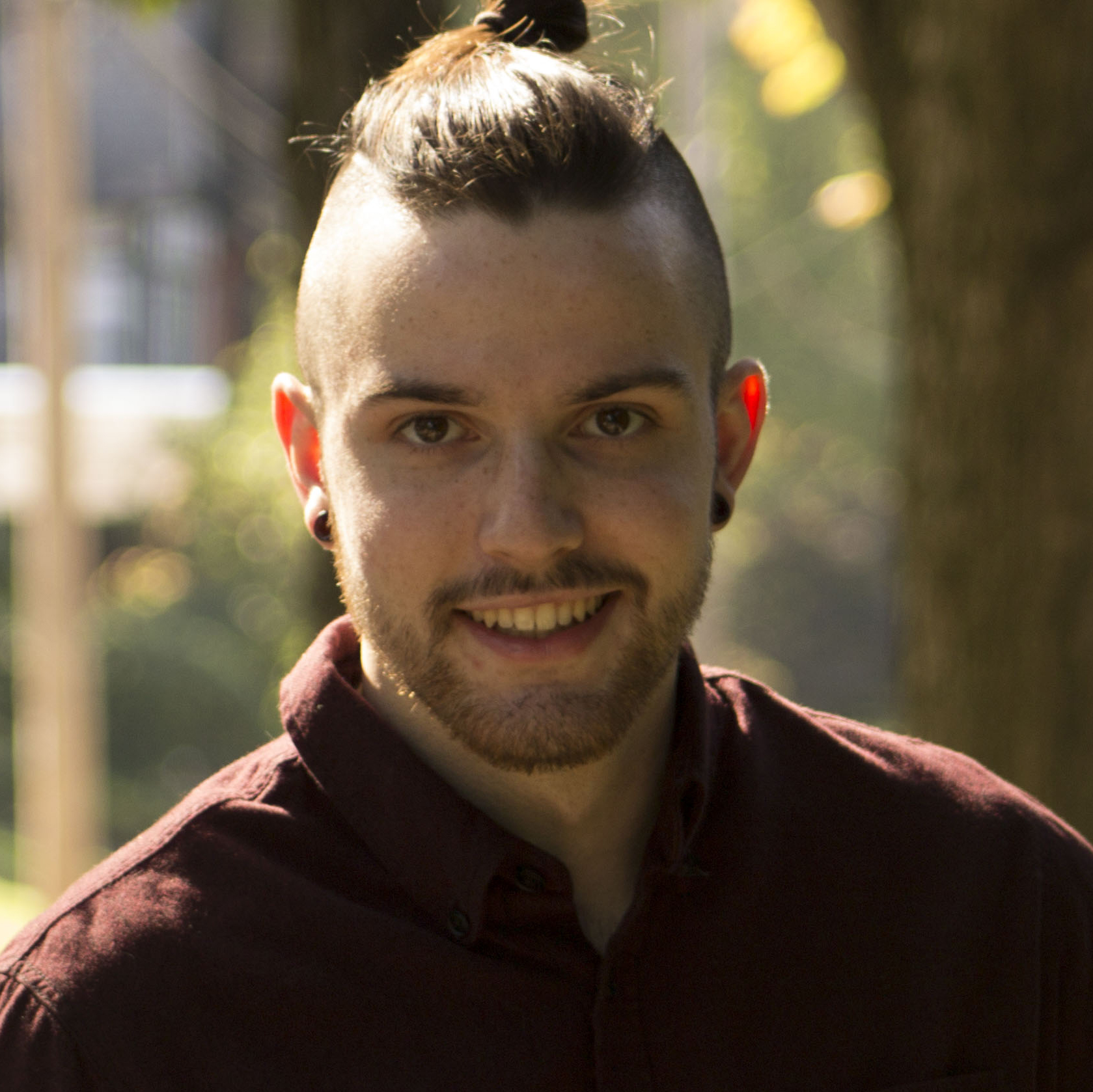How one of the first VR arcades will bring us together in our own little worlds
The arcade is back, minus the quarters
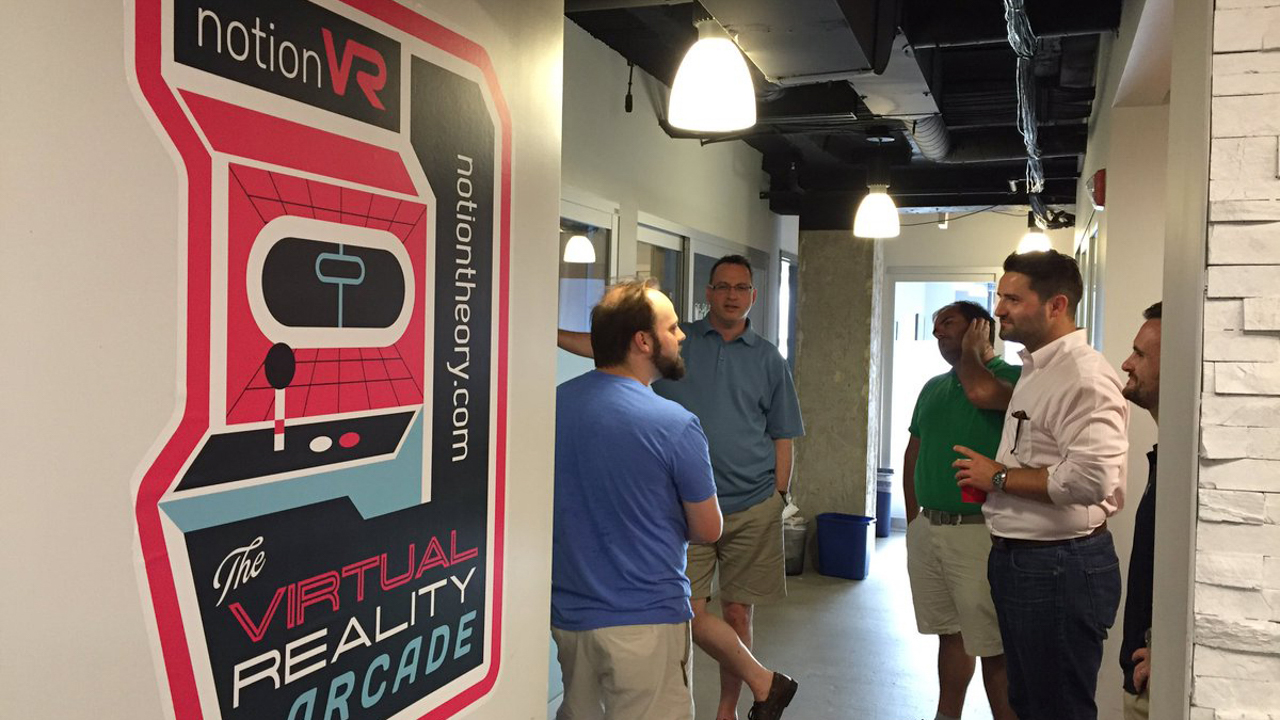
The possible 'next big thing' in virtual reality (VR) has an origins story that could almost have been ripped from the annals of gaming's scrappy beginnings.
Two years ago, a young Kristian Bouw left his home in Raleigh, North Carolina for Washington D.C. with nothing but a duffle bag and a car that would soon become his house. For his first month living in the US capitol, if you ran into Bouw, he may have asked to sleep on your couch or use your appliances, but he wasn't your average freeloader.
When he wasn't sleeping, Bouw was drafting up plans for a fixed cost, fixed timeline product development company called NotionTheory. Little did he know that, within two weeks of launch, Bouw would secure $20,000 (about £15,000, AU$26,000) for his business.
Today, you can walk into the offices of NotionTheory and shake hands with one of its seven employees who may even show you a demo or two of one of the 43 projects they've built and released. Or, if you're willing to shell out the $15 per 30 minutes of play, you can experience the first virtual reality arcade to inhabit the East Coast, NotionVR.
Bringing back the arcade (slowly)
As of now, there are over 14 games available to try out on the HTC Vive at NotionVR, all titles that the company's lead VR engineer Sean T. McBeth describes as "pretty much the most popular games" on the platform. NotionVR is the product of NotionTheory's five-month-old VR software development initiative, currently focused on lead VR engineer Sean T. McBeth's Primrose WebVR framework.
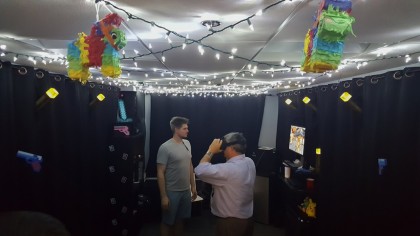
NotionTheory as a whole is an app development and design company serving a plethora of companies with different needs.
"I think of it as putting the sign out in front of the store," McBeth tells us at the recent launch of the NotionVR arcade. "With the arcade, it's actually a fairly low level of effort for us to put it together. It's all off-the-shelf components, and we have the space here. Money is the hardest part about setting this sort of thing up."
Sign up for breaking news, reviews, opinion, top tech deals, and more.
The arcade itself is positioned on the umpteenth floor of one of DC's numerous towering buildings, at the forefront of the NotionTheory offices. Currently, it occupies a single room with a single Vive headset accompanied by a Samsung Gear VR – if you have the right phone to make use of it. Otherwise, Sean might let you use his phone, if you can track him down.
If you're interested in a classically rowdy, after-school arcade meetup, you'll be disappointed by the limited ways to interact with other people in the same room when it comes to VR. Sure, you can compete with your friends for the high-score in something like Fruit Ninja, but you could do the same on public transit and keep your $15.
However, there are ample opportunities to improve the conditions of NotionVR's social arrangement. Sure, right now there may only be a headset and a half to pick from, but what if there were two Vives or two Samsung Gear VRs, even two Oculus Rifts? Hell, a HoloLens might entice guests even further.
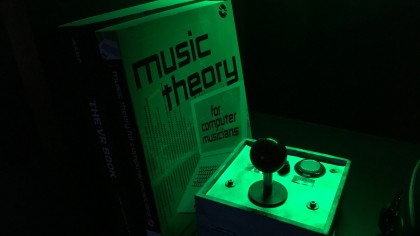
"With the Vive, it needs a dedicated space," McBeth said. "You can't put two Vives in one room, but we do have more space than we can use, so we'll have some other options there. Also, with our own meeting room, we'll be able to demo several people at the same time and there are some social VR apps already, like AltSpace VR, that you'll be able to try out."
AltSpace VR, for those out of the loop, is the "VR with friends" application for Gear VR, Oculus Rift and HTC Vive that lets users participate in a wide range of events, everything from Dungeons & Dragons games to stand-up comedy. Having not been designed for individuals in the same room it's still not exactly going to rev up excitement for a VR arcade.
We'll see how it holds up over the next three months, though, since that's how long NotionTheory intends to keep its arcade doors open – unless the response is overwhelmingly positive.
Is VR the new Wii?
Ten years ago, Nintendo released a gaming phenomena that overtook living rooms across the world. The Wii, with its wonky waggle wands and less-than-stellar graphics, drew families and friends to interact together in the same room in a way that's sadly rare even today. Interestingly enough, NotionTheory co-founder (and CEO) Kristian Bouw believes that VR has the potential to carry on that legacy.
"I was thinking about the Wii, right? Because it's pretty comparative to how you might be social with the Wii," he says. "A person is more or less wearing a headset, but with the Wii – yes, you can have more than one person play – but typically that wasn't where the experience was. It's still that same social setting, that same social driver."
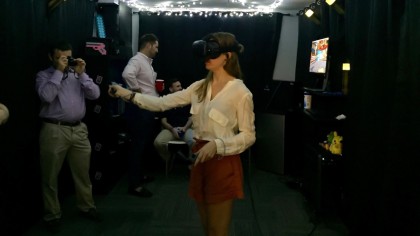
It was pretty evident at the launch of NotionVR that hands-on participation in VR is a non-factor in social engagement with the product. In fact, sometimes just watching, even through the lens of a flat-panel monitor can be just as riveting given the right audience.
"We kinda saw it here today," Bouw explains of the scene at the fledgling arcade's launch. "We had a crowd of people that were just in trance. There were two people literally just standing there for two hours, watching and laughing. They were even jumping in and helping out and cheering them on."
He likens it to the entertainment value of a Let's Play – videos on services like YouTube or streams on Twitch that simply depict a player as they're playing a game. Some people would rather watch Achievement Hunter play Job Simulator on an HTC Vive than do it themselves. You could even say the same for Wii Sports back in 2006, or even the Just Dance games.
Translating the observational angle of a YouTube video to an in-person social gateway stands to enhance the excitement even further.
Filling the communication void
Born in Europe, Kristian grew up talking to his family members in Holland over the phone, no visual context supplementing their conversations. Small talk, like "How are you doing?" would result in answers, such as "Oh, you know, Henry's this tall and he's started school and this is how he's doing." The distant feeling of dialogs like this cannot be understated. VR, he believes, has the power to transform how we communicate above all else.
"I remember one year we got a tablet, and we got Skype, and my family overseas got a tablet, and they got Skype," Bouw says. "And, so we went from just talking over a phone to now they were showing us the treehouse that they had built, the yard, the dog that had grown up, all the children and what they looked like now. And we were doing the same thing, which was incredibly empowering."
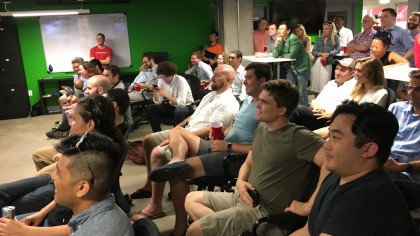
Bouw then started to reference a conversation he'd had with hospital staff about how they were approaching VR.
"Kids that are bedridden or individuals that have cancer are never going to be able to leave that space," he says. "They're not going to be able to get the chance to have all those experiences. But, with a headset, they can go anywhere in the world that they want and have those experiences. It just reminds me of how it opened up my world when we first got Skype and a tablet, and how empowering that was to completely reimagine how we experience something."
The arcade, it seems, is less about social integration and more about educating everyday people on the many benefits VR could provide. But hey, who says it can't be both?
"For us, the arcade is primarily to let people know about VR," Bouw tells us. "We're only really charging enough to break even here."
Sure, VR arcades are still in their infancy, but if you want to pay a visit to notionVR, don't expect an opening anytime soon. Marketing and growth expert at NotionTheory Stephen Kae tells us the mid-atlantic arcade is completely booked for the next few weeks (as of this writing), perhaps indicating a burgeoning renaissance of the venue – one riding on whether people are interested in playing alone, but together.
